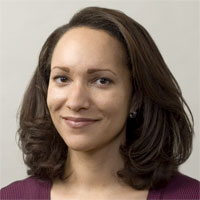非常抱歉,
你要访问的页面不存在,
非常抱歉,
你要访问的页面不存在,
非常抱歉,
你要访问的页面不存在,
验证码:

职称:Professor; Associate Dean for Academic Programs and Initiatives, Rackham Graduate School
所属学校:University of Michigan-Ann Arbor
所属院系:Secondary Teacher Education
所属专业:Secondary Education and Teaching
联系方式:734.615.1268
Tabbye Chavous's research interests and projects center around (1) racial and gender identity development among African American adolescents and young adults and its relationship with students' academic identities, as well as implications for academic and psychological adjustment outcomes; (2) transitions to secondary schooling and higher education among ethnic minority students; and (3) racial and multicultural climates within secondary and higher education settings and implications for students' social and academic outcomes. She is a principal investigator and codirector of the university's Center for the Study of Black Youth in Context, a center funded through the National Science Foundation focused on research, training, and community outreach/engagement related to promoting positive development among diverse populations of Black youth and families. Also, Chavous has secured funding through grants from the National Institutes of Health, National Science Foundation, and the Spencer Foundation for research projects focusing on racial socialization processes among African American adolescents, psychological and contextual factors affecting college transitions among African American students; and relationships among racial identity, racial discrimination, and well-being among ethnic minority college students. Most recently, she was awarded a National Science Foundation grant for a project examining academic identification processes among African American students pursuing academic pathways in STEM fields. Chavous’s undergraduate and graduate teaching interests and contributions include: adolescent psychology, with a focus on adolescent development in the context of schools, communities, and other societal institutions; educational psychology and human development; foundations of teaching and learning; schools as organizations; community psychology; and social science approaches to understanding and addressing "achievement gaps," or educational disparities across race, ethnicity, gender, and social class.
Tabbye Chavous's research interests and projects center around (1) racial and gender identity development among African American adolescents and young adults and its relationship with students' academic identities, as well as implications for academic and psychological adjustment outcomes; (2) transitions to secondary schooling and higher education among ethnic minority students; and (3) racial and multicultural climates within secondary and higher education settings and implications for students' social and academic outcomes. She is a principal investigator and codirector of the university's Center for the Study of Black Youth in Context, a center funded through the National Science Foundation focused on research, training, and community outreach/engagement related to promoting positive development among diverse populations of Black youth and families. Also, Chavous has secured funding through grants from the National Institutes of Health, National Science Foundation, and the Spencer Foundation for research projects focusing on racial socialization processes among African American adolescents, psychological and contextual factors affecting college transitions among African American students; and relationships among racial identity, racial discrimination, and well-being among ethnic minority college students. Most recently, she was awarded a National Science Foundation grant for a project examining academic identification processes among African American students pursuing academic pathways in STEM fields. Chavous’s undergraduate and graduate teaching interests and contributions include: adolescent psychology, with a focus on adolescent development in the context of schools, communities, and other societal institutions; educational psychology and human development; foundations of teaching and learning; schools as organizations; community psychology; and social science approaches to understanding and addressing "achievement gaps," or educational disparities across race, ethnicity, gender, and social class.